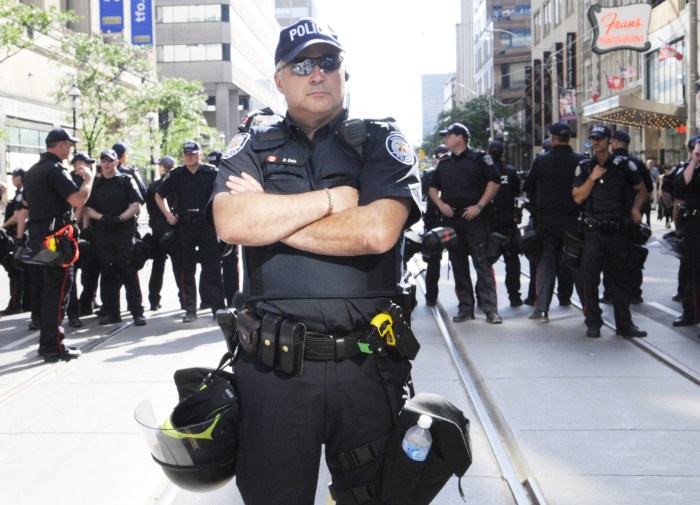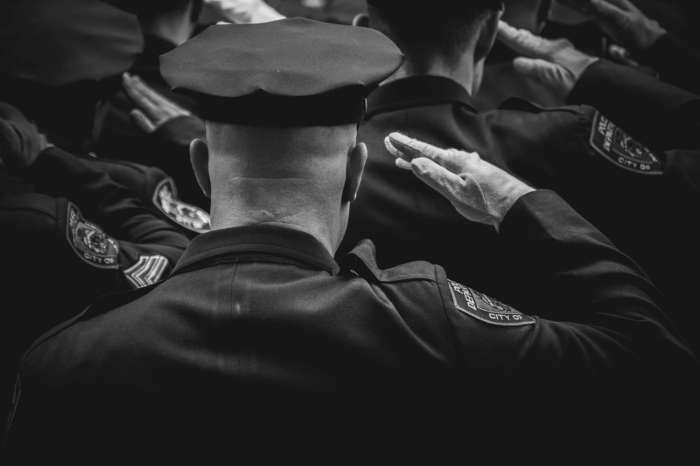Which is not indicative of the police culture – Police culture, often portrayed in a singular and negative light, encompasses a complex and multifaceted reality. This article delves into the values, beliefs, and practices that challenge the traditional perceptions of police culture, exploring its complexities and nuances.
While certain aspects of police culture have been criticized, there are also core principles that emphasize community engagement, accountability, and ethical conduct. By examining these alternative perspectives, we gain a more comprehensive understanding of the evolving nature of police culture.
Historical Context
Police culture has a long and complex history, dating back to the origins of policing in the 18th century. The early police forces were often characterized by a strong sense of camaraderie and loyalty, as well as a belief in the importance of order and discipline.
These values were reinforced through a system of strict hierarchy and authoritarian leadership.
As police forces grew and became more professionalized, they began to adopt a more bureaucratic and impersonal style of operation. This shift was accompanied by a decline in the sense of camaraderie and loyalty that had characterized the early police forces.
In its place, there emerged a more individualistic and competitive culture, in which officers were rewarded for their individual accomplishments rather than their contributions to the team.
Origins and Evolution of Police Culture
The origins of police culture can be traced back to the early days of policing in England. The first police force was established in London in 1829, and it was modeled on the military. This military influence had a profound impact on the development of police culture, as it instilled in officers a sense of discipline, hierarchy, and authority.
Over time, police culture evolved as police forces adapted to changing social and political conditions. In the United States, for example, the rise of the civil rights movement in the 1960s led to a shift in police culture towards a more community-oriented approach.
However, the militarization of police in recent years has led to a resurgence of some of the more authoritarian values that were characteristic of the early police forces.
Values and Beliefs

Core Values and Beliefs that are NOT Indicative of Police Culture
There are a number of core values and beliefs that are not indicative of police culture. These include:
- Respect for human rights
- Fairness and impartiality
- Transparency and accountability
- Community engagement
- Use of force only as a last resort
These values and beliefs are in contrast to the more traditional values of police culture, which emphasize order, discipline, and authority.
Organizational Structure

Decentralized or Centralized Structure, Which is not indicative of the police culture
The organizational structure of police departments can have a significant impact on the development of police culture. Decentralized police departments are characterized by a high degree of autonomy for individual officers and units. This can lead to a more fragmented and individualistic culture, in which officers are less likely to feel a sense of belonging to the organization as a whole.
In contrast, centralized police departments are characterized by a more hierarchical and bureaucratic structure. This can lead to a more cohesive and disciplined culture, in which officers are more likely to feel a sense of loyalty to the organization.
Training and Education

Training Programs and Curricula
Training and education play a vital role in shaping police culture. Police officers who receive training in community policing, conflict resolution, and human rights are more likely to adopt values and beliefs that are not indicative of traditional police culture.
In addition, police departments can develop curricula that specifically promote values and beliefs that are not indicative of traditional police culture. For example, the New York City Police Department has developed a curriculum on implicit bias that is designed to help officers identify and challenge their own unconscious biases.
Community Relations: Which Is Not Indicative Of The Police Culture

Impact of Community Relations
Community relations can have a significant impact on police culture. Police officers who have positive interactions with the community are more likely to develop values and beliefs that are not indicative of traditional police culture.
In contrast, police officers who have negative interactions with the community are more likely to develop values and beliefs that are more in line with traditional police culture. This is because negative interactions with the community can lead to feelings of frustration, anger, and distrust.
FAQ Summary
What are the core values of a police culture that is not indicative of the traditional stereotypes?
Values such as integrity, accountability, respect, fairness, and compassion are central to a positive police culture.
How does training and education play a role in shaping police culture?
Training programs that emphasize de-escalation techniques, cultural sensitivity, and community engagement can promote values that challenge negative stereotypes.
What is the impact of community relations on police culture?
Positive interactions with the community can foster trust and understanding, leading to a police culture that is more responsive to the needs of the people it serves.